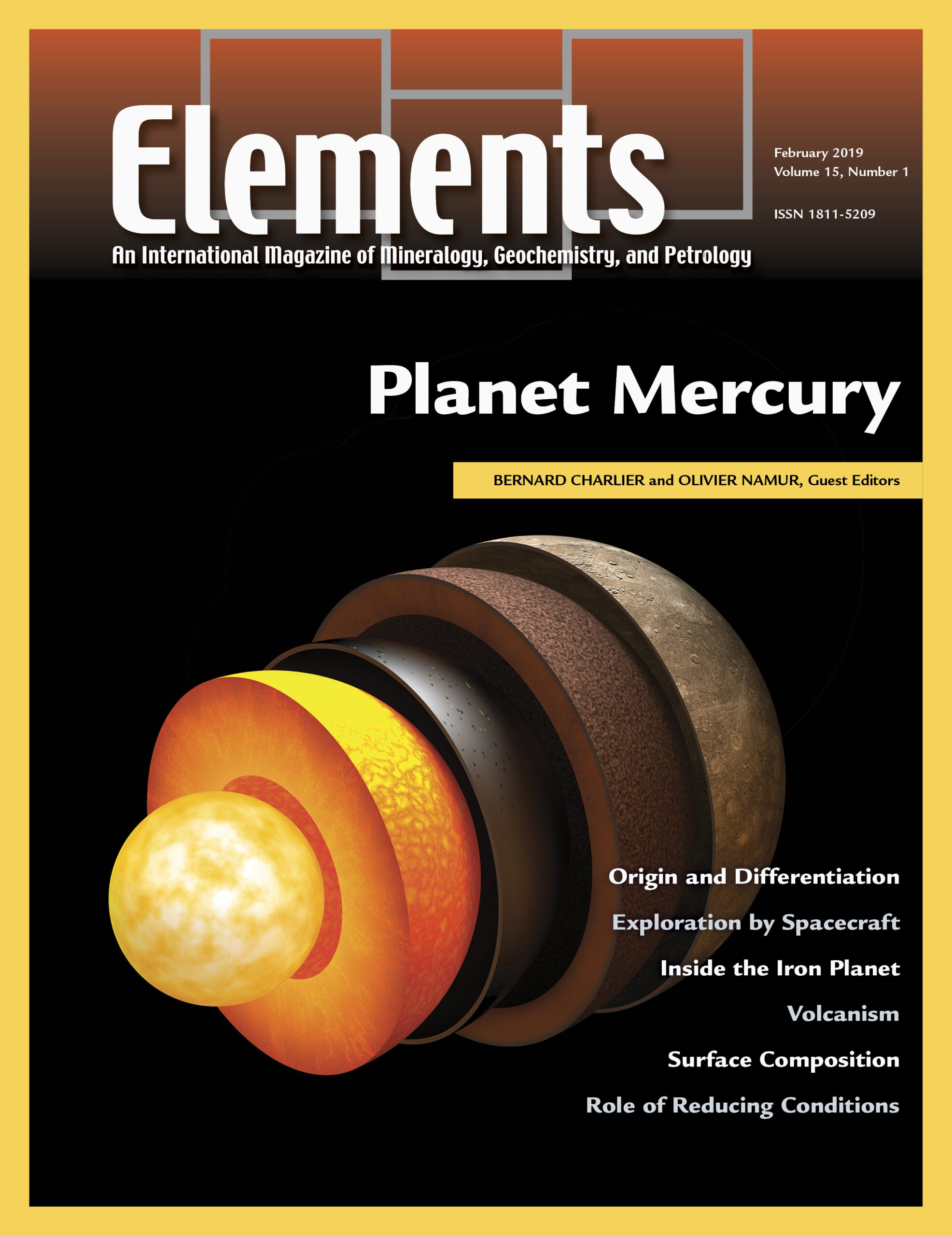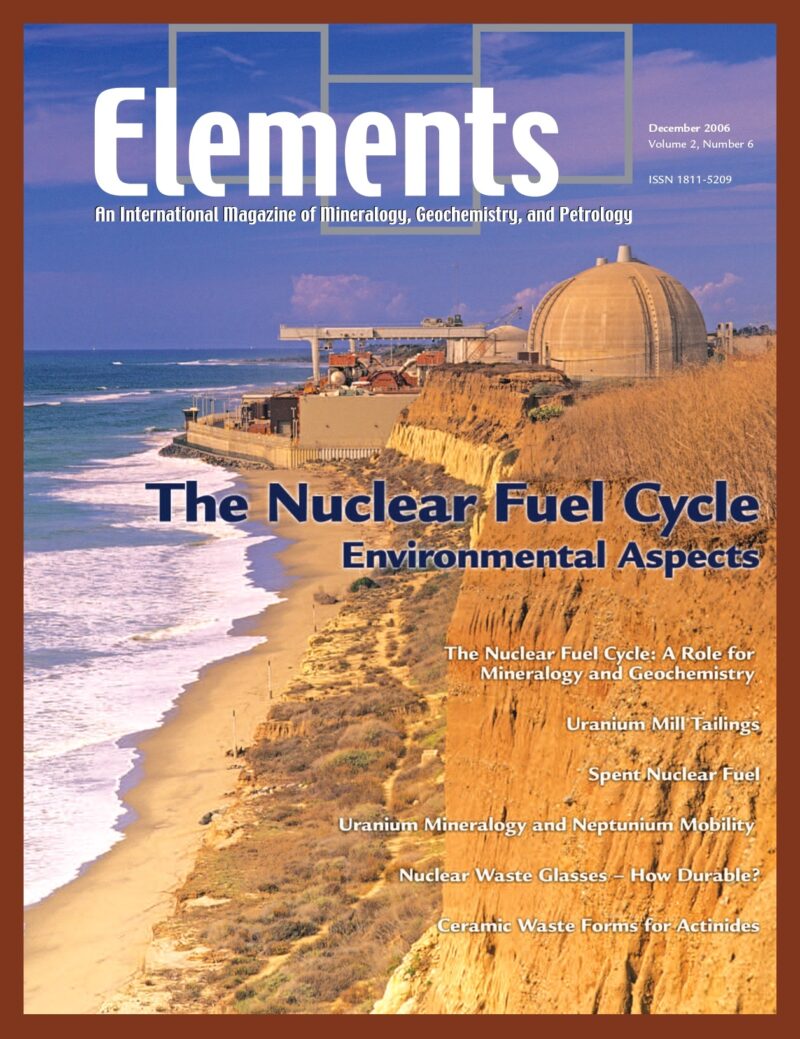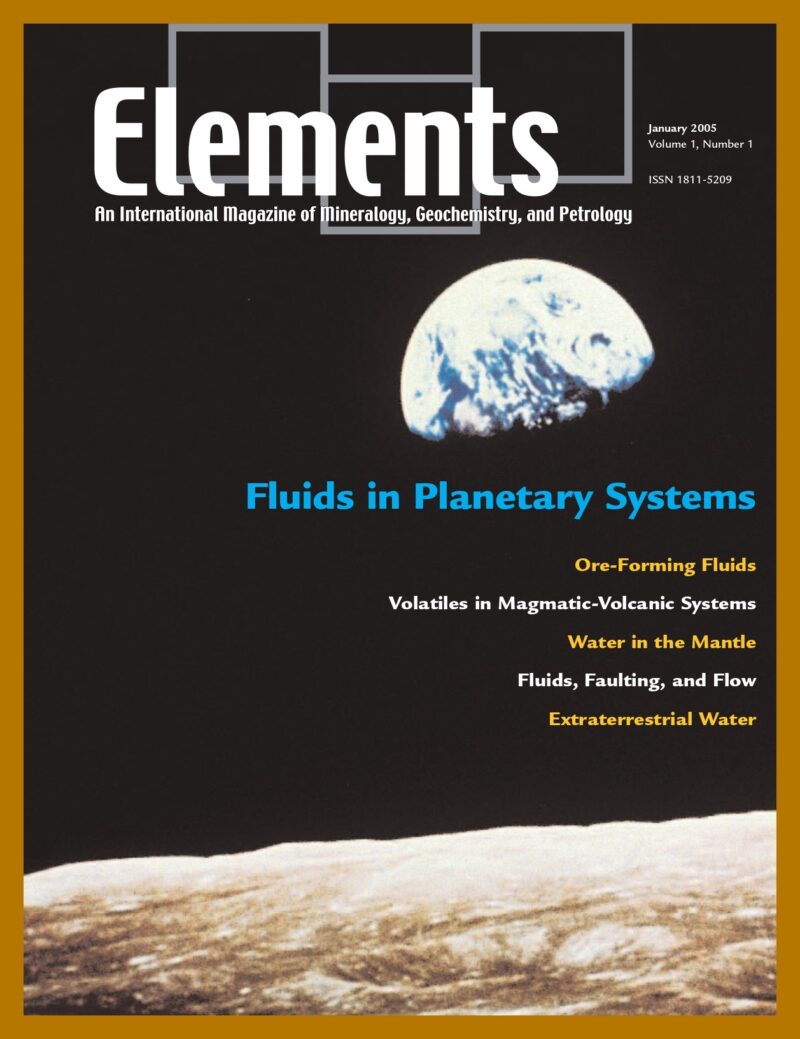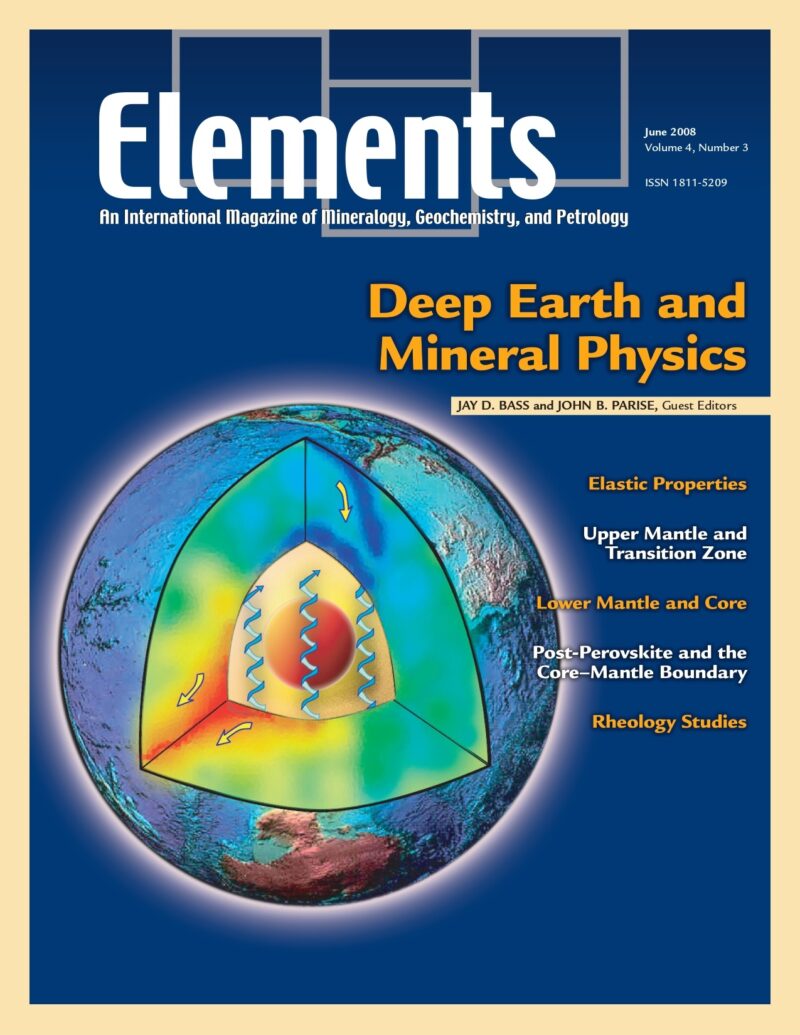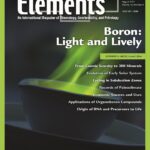
Boron: Light And Lively, August 2017, Vol. 13, No. 4
June 28, 2024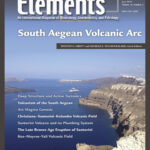
South Aegean Volcanic Arc, June 2019, Vol. 15, No. 3
June 28, 2024Planet Mercury, February 2019, Vol. 15, No. 1
$20.00
Mercury is unique amongst terrestrial planets because of its very high metal/ silicate ratio. The NASA MESSENGER mission ended in 2015 and significantly advanced our understanding of the deep structure of the planet as well as our comprehension of Mercury’s volcanic history and crust formation.
Planet Mercury
February 2019, Vol. 15, No. 1
Mercury is unique amongst terrestrial planets because of its very high metal/ silicate ratio. The NASA MESSENGER mission ended in 2015 and significantly advanced our understanding of the deep structure of the planet as well as our comprehension of Mercury’s volcanic history and crust formation. The European Space Agency (ESA) is now ready for the launch of the BepiColombo mission that will take place at the end of 2018. The “Planet Mercury” issue summarizes the latest developments in light of MESSENGER data and perspectives for the BepiColombo mission on internal structures and surface processes, based on insights from geophysics, geochemistry, igneous and experimental petrology and volcanology.
Why You’ll Love Elements Magazine:
- Expert Contributors: Articles written by renowned researchers in the field of geoscience.
- Engaging Content: Join a community of readers who are passionate about Elements.
- Exceptional Quality: Each issue is printed on high-quality paper with stunning visuals and detailed illustrations that bring complex scientific concepts to life.
Order your copy of the February 2019 issue of Elements magazine today and explore planet Mercury.
Related products
-
The Nuclear Fuel Cycle – Environmental Aspects, December 2006, Vol. 2, No. 6
$20.00Increasing concerns for the effects of global warming that result from rising greenhouse gas concentrations in the atmosphere have led to a reexamination, even enthusiasm, for nuclear power. Of all the current alternatives to fossil fuels, nuclear fission is the most important source of energy, accounting for 17 percent of the world’s electricity.
-
Fluids in Planetary Systems, January 2005, Vol. 1, No. 1
$20.00Water and other geofluids play an important role in the geochemical and rheological evolution of the Earth and other bodies in the solar system. These fluids are responsible for the formation of hydrothermal mineral deposits, affect eruption behavior in volcanic systems and the geophysical properties of the mantle, and significantly affect the way in which rocks deform and fracture.
-
Deep Earth And Mineral Physics, June 2008, Vol. 4, No. 3
$20.00The field of high-pressure mineral physics is central to our understanding of the Earth’s interior and its evolution. It is also a field that is rapidly advancing.

